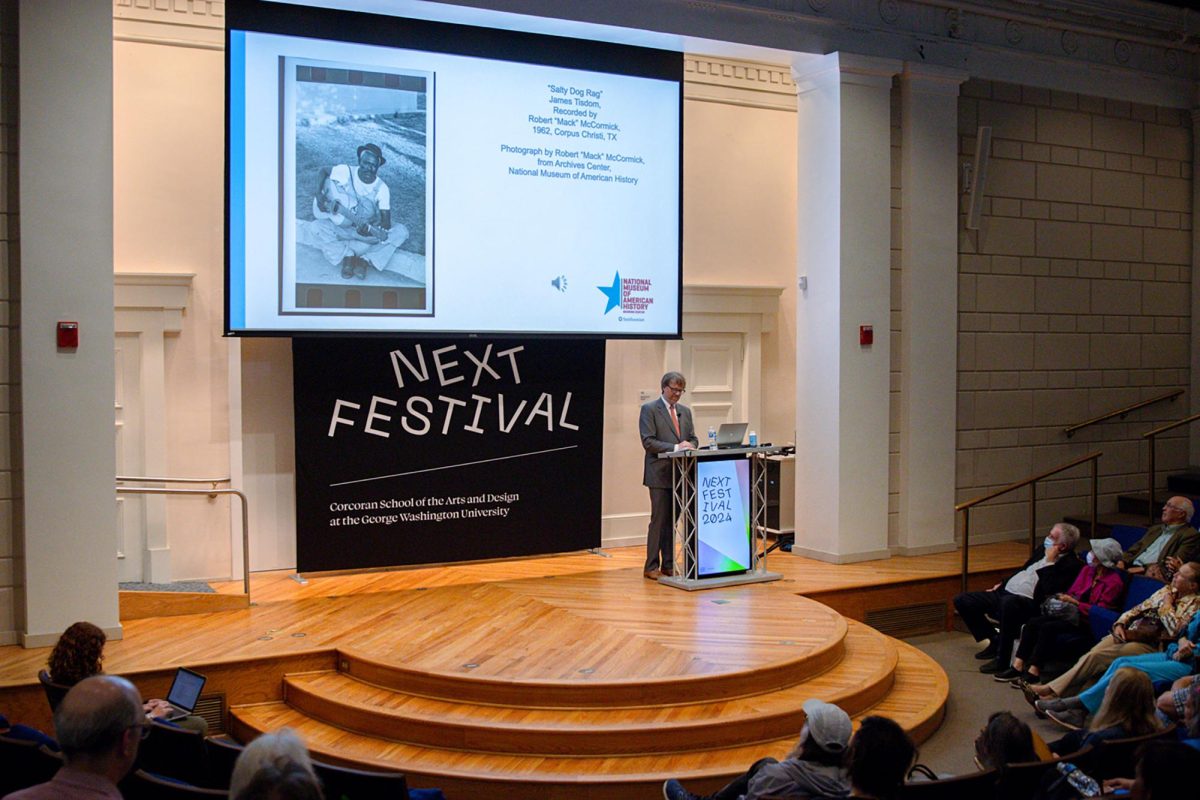The Cisneros Hispanic Leadership Institute hosted the President of the Carnegie Endowment for International Peace at the Elliot School for International Affairs Tuesday.
Mariano-Florentino Cuéllar spoke about his journey in becoming a lawyer, a justice in California’s Supreme Court and the first Hispanic president of the Carnegie Endowment of International Peace. The event was part of the Diálogos Hispanos Speaker’s Series hosted by the Cisneros Hispanic Leadership Institute, with co-hosts GW ESIA Diversity & Inclusion, the Leadership, Ethics and Practice Initiative, the Security Policy Studies program and GW Campus Living & Residential Education.
Cisneros Institute Executive Director Elizabeth Vaquera moderated the event.
Cuéllar said his experience as an immigrant from Mexico with a diverse background helps give listeners a perspective on a “nontraditional” career path. When asked about how he decided to pursue a career in law, Cuéllar said his decision to do so didn’t come until “late in the game.”
Cuéllar said the summer following his junior year of undergraduate education at Harvard University, he spent time observing police officers in Chicago and how they were subject to the law despite their positions of power, inspiring him to follow the legal path.
“So I came back to college, my last year, and spent the better part of a week just crashing law school classes as an undergrad,” Cuéllar said.
Cuéllar said it is important for people who want to pursue law as a career to find passion in their work and get creative with the ways they can use their skills. He said he remembered the story of a friend in law school who wanted to set up a law firm for low-income people in a working-class neighborhood and did so by creating a pizza parlor where people could eat and get legal advice.
“I found it was really useful to take a step back and keep in mind, ‘Why do I care about law school? What’s important to me?’” Cuéllar said.
Cuéllar said that throughout his work as an associate justice of the California Supreme Court, there were times when his credentials were questioned. Cuéllar said before his confirmation, he faced skepticism from other California court officials.
“I think you could actually stand your ground and think ‘I’m gonna be here, because here I am,’ and at the same time still disarm people a little bit,” Cuéllar said.











